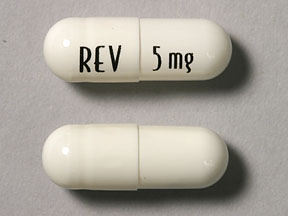
Recently Diagnosed or Relapsed? Stop Looking For a Miracle Cure, and Use Evidence-Based Therapies To Enhance Your Treatment and Prolong Your Remission
Multiple Myeloma an incurable disease, but I have spent the last 25 years in remission using a blend of conventional oncology and evidence-based nutrition, supplementation, and lifestyle therapies from peer-reviewed studies that your oncologist probably hasn't told you about.
Click the orange button to the right to learn more about what you can start doing today.
- You are here:
- Home »
- Blog »
- Multiple Myeloma »
- Stage 1 Multiple Myeloma- Continue Non-toxic or Go Low-dose Chemotherapy?
Stage 1 Multiple Myeloma- Continue Non-toxic or Go Low-dose Chemotherapy?

You appear to be early stage 1 MM. Yes, you have bone destruction- I am surprised that your serum calcium levels are not high.
Good day David- I became a MM CC program member in July 2019. I would like to to ask your opinion if you do not mind, on my case of multiple myeloma (MM).
I am a 49 year old male and was diagnosed with MM in February of 2019. The diagnosis came about after prolonged lower back pain and X-rays revealed a collapsed L3 vertebrae and severe osteoporosis which lead to blood tests and diagnosis of MM by a Haematologist.
The Haematologist recommended immediate Cortisone treatment to ‘buy a bit of time’ as he put it, before chemotherapy. I underwent a 3 day in hospital IV treatment of Dexamethasone.
In March of 2019 after the treatment I decided to postpone chemotherapy in favour on ongoing holistic treatment, for as long as possible. I was at that time already seeing a Naturopath/ chiropractor whose treatment up to now has brought tremendous pain relief, to the extent that I am pain free on L3. The treatment also involved other Eastern medical disciplines and philosophies.
I was following a vegetarian diet and only started introducing animal protein, twice weekly last month. I am not overweight at all, in fact I need to gain a bit of weight!
I am taking the following supplements:
- L-Glutamine,
- D Ribose,
- Spirulina,
- Zinplex,
- Alpha Lipoic Acid,
- Coenzyme Q10,
- Magnesium Oxide,
- Vit C,
- Curcumin,
- Sutherlandia,
- Apricot kernels and a
- 50/50% CBD/TCH oil.
I do Ozone treatment 3x week.
I cycle when possible and do pilates and yoga.
I had an X-ray last week which revealed no significant deterioration of the affected areas in the past 12 months. Lesions still contained to the pelvic area and not spreading.
During the course of the past year, my 3 monthly blood tests showed slight improvements. However, my latest tests from last week presented worrisome results in the Kappa/ Lamba FLC and increase in the K/L ratio with the monoclonal peak (Igg in the Gamma region) not changing much over the course of 12 months.
The liver, kidney and calcium results are all within the normal markers.
RBC is slightly below normal (3.58), and WBC a bit more below normal (2.5)
I am not being treated by a Haematologist and my naturopath practitioner is not very adept with MM
- Do you think the Dexamethasone treatment had such a long lasting effect that that the Kappa/Lamba FLC is only showing the increase now?
- I am including a table of the last 12 month’s K/L reading. Should I seek alternative treatment sooner rather than later?
| S-Free Kappa | 3.3 – 19.4 mg/L | 488.4 | 419.19 | 449.57 | 439.77 | 609.16 |
| S-Free Lambda | 5.71 – 26.3 mg/L | 1.9 | 2.03 | 5.16 | 5.69 | 4.54 |
| S-Kappa:Lambda Ratio | 0.26 – 1.65 | 257.05 | 206.5 | 87.13 | 77.29 | 134.18 |
| Monoclonal peaks | 33.3 9.8 2.6 | 31.7 9.2 1.8 | 31.7 7.7 1.6 | 34.2 8.3 2.0 |
Unfortunately, I am at a crossroad with conventional vs holistic treatment and would really appreciate your wisdom from years of experience with MM- Larry
Hi Larry- You are a young, early stage MM patient. Your prognosis is good. I will address your issues as directly as I can.
- MM Survivor
- MM Coach
- Director PeopleBeatingCancer
- Cancer Coaching Testimonials- PeopleBeatingCancer
- Multiple Myeloma Diagnosis? 6 Experience-based Non-Conventional Therapies
- Pre or Multiple Myeloma Diagnosis- High-Risk Plasmacytoma- PreHabilitation!
“Dexamethasone and the other steroids are useful in myeloma treatment because they can stop white blood cells from traveling to areas where cancerous myeloma cells are causing damage. This decreases the amount of swelling or inflammation in those areas and relieves associated pain and pressure.
More importantly, in high doses, dexamethasone can actually kill myeloma cells…”
Cancer prehabilitation: One step toward improved outcomes
“Many of the early studies on cancer prehabilitation typically focused exclusively on building strength and stamina through an appropriate exercise regimen; however, more recent research has supported a multimodal approach that encompasses more than one intervention (ie, a combination of exercise, nutrition, and psychological strategies) to better prepare patients for the challenges associated with upcoming cancer treatments.2…”



